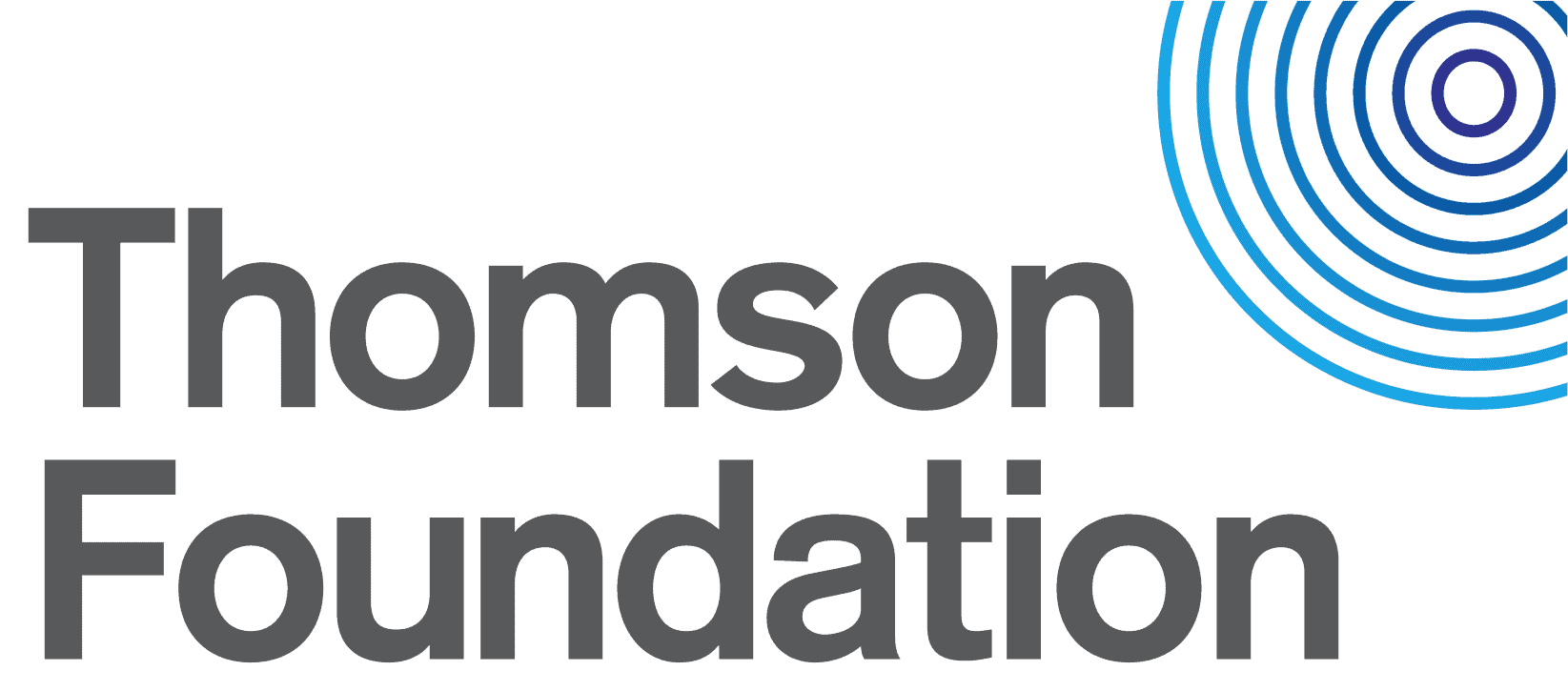[vc_row][vc_column][vc_column_text]
The Photographer’s Ethical Toolkit
[/vc_column_text][vc_single_image image=”24832″ img_size=”full” alignment=”center” onclick=”custom_link” img_link_target=”_blank” link=”https://thomsonfoundation.edcastcloud.com/learn/the-photographer-s-ethical-toolkit-self-paced-6636″][vc_column_text]The Ethical Journalism Network’s supporter, the Photography Ethics Centre has created a free online course – The Photographer’s Ethical Toolkit in partnership with Thomson Foundation. The course is led by the Photography Ethics Centre’s founder Savannah Dodd with experts including the Chairman of Camerapix, Salim Amin, who is an EJN board member.[/vc_column_text][vc_btn title=”ENROL FOR THE COURSE” color=”orange” size=”lg” align=”center” button_block=”true” link=”url:https%3A%2F%2Fthomsonfoundation.edcastcloud.com%2Flearn%2Fthe-photographer-s-ethical-toolkit-self-paced-6636|||”][vc_column_text]
Course Overview
This course is facilitated by Savannah Dodd, founder and director of the Photography Ethics Centre. It is designed to introduce basic principles in photography ethics. It is a primer course that is applicable to anyone who regularly takes or shares photographs.
- Section 1 provides an overview of the course and introduces the course trainer and media experts.
- Section 2 discusses photography ethics and introduces three key ethical principles in photography: Empathy, Autonomy, and Integrity.
- Section 3 explores how empathy can be applied in photography.
- Section 4 explores the principle of autonomy in photography, and discusses how you can handle consent in different situations.
- Section 5 explores the importance of acting with integrity toward the audience.
- Section 6 summarises the key points covered in the course and lists some takeaway questions to consider in your photography practice.
By the end of this course participants will be able to:
- Apply empathy, autonomy, and integrity to your photography practice.
- Understand the considerations that impact ethical decision-making in photography.
- Engage with important ethical discussions that are taking place within photography.
[/vc_column_text][vc_btn title=”ENROL FOR THE COURSE” color=”orange” size=”lg” align=”center” button_block=”true” link=”url:https%3A%2F%2Fthomsonfoundation.edcastcloud.com%2Flearn%2Fthe-photographer-s-ethical-toolkit-self-paced-6636||target:%20_blank|”][vc_column_text]
Meet the Experts
Savannah Dodd – Course Instructor
Savannah is a photographer and anthropologist. She brought her two passions together in 2017 when she founded the Photography Ethics Centre, a social enterprise dedicated to raising awareness about ethics across the photography industry and around the world. Prior to founding the Centre, she completed her bachelor’s and master’s degrees in anthropology, and she worked in the development sector for NGOs and IGOs in Switzerland, Turkey, and Thailand. Alongside her work in the Photography Ethics Centre, she is pursuing her PhD in anthropology studying the politics of representation in photographs of conflict and post-conflict contexts at Queen’s University Belfast.
Kate Holt
Kate was born in Zimbabwe, grew up in Newfoundland, and was educated in the UK. She completed her studies with a History Masters from St Andrew’s University, Scotland and a Post Graduate Diploma in Photojournalism from The London School of Printing. For 10 years, Kate was based in Nairobi, Kenya covering news events throughout Africa. In 2009, she relocated to Afghanistan and spent 3 years covering the ongoing conflict there for British newspapers including the Daily Mail, The Guardian and the Financial Times. Kate is now based in the UK but travels across the world gathering humanitarian stories for the UK media and her communications agency Arete that “tells stories that make a difference”.
Salim Amin
Salim Amin is Chairman of Camerapix, founder and Chairman of The Mohamed Amin Foundation. As Executive Producer and Presenter, Salim finished a documentary chronicling his father’s life in March 2006 entitled “MO & ME” which has won over 20 Awards for Best Documentary in the United States, Canada, India and on the African Continent, including the Grand Jury Award at the New York International Film Festival. In 2011 he presented and co-produced the award-winning short film, “Revisiting Korem”, tracing back Mohamed Amin’s footsteps to Korem and Makelle where he filmed the devastating 1984 famine, to see the lessons learned in Ethiopia and the measures taken to ensure drought does not equal famine. In October 2014, Salim launched his weekly Talk Show “The Scoop”, speaking to great African personalities around the Continent, and reaching a global audience of over 200 million people on television, radio and online. Salim is a member of the Ethical Journalism Network‘s Board of Trustees.[/vc_column_text][vc_btn title=”ENROL FOR THE COURSE” color=”orange” size=”lg” align=”center” button_block=”true” link=”url:https%3A%2F%2Fthomsonfoundation.edcastcloud.com%2Flearn%2Fthe-photographer-s-ethical-toolkit-self-paced-6636||target:%20_blank|”][vc_column_text]
The Photography Ethics Centre
www.photoethics.org
The Photography Ethics Centre is a social enterprise that aims to raise awareness about photography ethics.
Today everyone has a camera in their pocket, and millions of people self-identify as photographers. The democratization of photography has countless benefits, but it has brought with it the rise of “fake news”, increased incidents of photo manipulation, and the rampant circulation of images online without consent. Unethical practices have led to litigation, damaged reputation, and loss of business. These incidents impact photographers working at all levels, as they bring into question the integrity of the entire industry.
The Photography Ethics Centre aims to raise awareness about ethics through training programmes for individuals, institutions, and organisations. Everyone will answer ethical questions in their own way, based on the context, their life experience, and their photographic vision. That is why we do not give photographers a checklist of ethical guidelines. Instead, we give photographers the tools to think critically about ethics questions for themselves, ensuring that they are equipped to field ethical issues when they arise.
Thomson Foundation
http://www.thomsonfoundation.org/
http://www.thomsonfoundation.org/e-learning/
Thomson Foundation has been helping raise standards of journalism and communication around the globe through training, consultancy and strategic advice since 1962. With the launch of Journalism Now in November 2018, Thomson Foundation has extended its ability to engage with journalists using online tools offering online training to thousands of journalists.
Journalism Now is a series of online interactive courses designed and led by industry experts and partners like the Ethical Journalism Network and Photography Ethics Centre providing the latest in digital and multimedia skills. The global learning environment gives exclusive access to live training and mentoring sessions, run by leading journalists, and a unique knowledge-sharing platform.
Our online portal allows alumni and all course participants to interact and share new knowledge and information with our experts and fellow journalists.[/vc_column_text][vc_btn title=”ENROL FOR THE COURSE” color=”orange” size=”lg” align=”center” button_block=”true” link=”url:https%3A%2F%2Fthomsonfoundation.edcastcloud.com%2Flearn%2Fthe-photographer-s-ethical-toolkit-self-paced-6636||target:%20_blank|”][vc_column_text]Written by the Photography Ethics Centre.
Produced by Thomson Foundation.
All rights reserved.[/vc_column_text][vc_column_text]
Ethical Journalism Resources
[/vc_column_text][vc_basic_grid post_type=”post” max_items=”10″ element_width=”6″ item=”706″ grid_id=”vc_gid:1537833770712-453c51ad-be1c-5″ taxonomies=”378″][vc_single_image image=”22035″ img_size=”full” alignment=”center” onclick=”custom_link” img_link_target=”_blank” link=”https://ethicaljournalismnetwork.org/resources”][/vc_column][/vc_row]